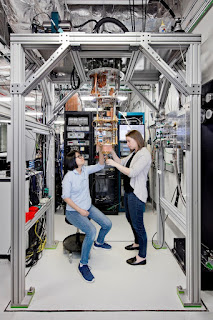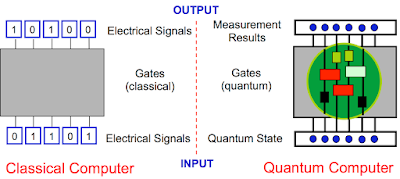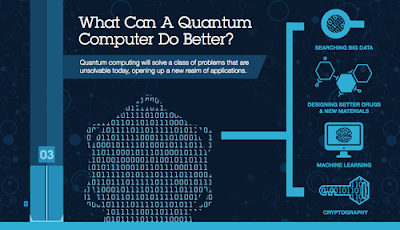Twitter Feed
Virtual Machines in Virtual Networks
One of the key value propositions in cloud computing is built around increase efficiencies. These eficiencies are diven by the use of virtual machines (VMware, XEN, etc.) and the automated…
SOA-R Interest Grows
Interest continue to grow in the use of cloud computing concepts for national security missions. Although some view the idea of a “private cloud” as an oxymoron, I personally see…
Microsoft: “Cloud Computing is the Plan”
From the Wireless Business & Technology Cloud Computing News Desk : “Ballmer highlighted software-plus-service, associating it with a ‘platform in the cloud and delivering applications across PCs, phones, TVs, and…
CC Tidbits
Interesting tidbits from Maureen O’Gara in Apple, Google, Yahoo & Cloud Computing: Industry gadfly John Dvorak is advancing a theory culled from the blogosphere that Microsoft wants Yahoo for some…
Correlative Analytics: Cloud Computing Google Mindshare
Correlative Analytics (A.K.A. “The Google Way of Science“) postulates that extremely large databases of information, starting in the petabyte level, may be sufficient to skip the theory part of the…
What is Cloud Computing? — Another view
Irving Wladasky-Berger, chairman emeritus of IBM’s Academy of Technology, recently wrote and article on cloud computing titled “What is Cloud Computing, Anyway?”. The following is my interpretation of a few…
Dark Cloud Computing
In his blog article “The Rise of The Dark Cloud” Reuven Cohen wonders about a growing interest in covert computing. Although he briefly mentions malevolent uses of the net, the…
July Military Information Technology magazine
This month’s issue of Military Information Technology magazine has the Army’s Chief Information Officer, Lieutenant General Jeffrey A. Sorenson, on the cover. The enclosed special report, titled LANDWARNET Transformation, has…
“The Big Switch” and Intellipedia Highlighted
During last week’s SOA-R session, Steven Armentrout referenced “The Big Switch” by Nicholas Carr as a very enlightened view of our changing world. On July 17th, Information Week’s Richard Martin…
Does anybody really know what cloud computing is?
Less than 2% of the CIOs in an Infoworld survey said that cloud computing was a priority. The surveyed indicated that server virtualization and server consolidation are their No. 1…
- The release of a new API (Application Program Interface) for the IBM Quantum Experience that enables developers and programmers to begin building interfaces between its existing five quantum bit (qubit) cloud-based quantum computer and classical computers, without needing a deep background in quantum physics.
- The release of an upgraded simulator on the IBM Quantum Experience that can model circuits with up to 20 qubits. In the first half of 2017, IBM plans to release a full SDK (Software Development Kit) on the IBM Quantum Experience for users to build simple quantum applications and software programs.
The IBM Quantum Experience enables anyone to connect to IBM’s quantum processor via the IBM Cloud, to run algorithms and experiments, work with the individual quantum bits, and explore tutorials and simulations around what might be possible with quantum computing. Since its launch less than a year ago, about 40,000 users have run over 275,000 experiments on the IBM Quantum Experience. It has become an enablement tool for scientists in over 100 countries and, to date, 15 third-party research papers have been posted to arXiv with five published in leading journals based on experiments run on the Quantum Experience.
 The broad availability of quantum computing capability could prove to be a significant blow to current data encryption practices. In 2015 the US National Security Agency actually advised US agencies and businesses to prepare for a time when the cryptography protecting virtually all e-mail, medical and financial records, and online transactions would be rendered obsolete by quantum computing. The US National Institute for Standards and Technology (NIST) is also running a competition to spur work on post-quantum algorithms.
The broad availability of quantum computing capability could prove to be a significant blow to current data encryption practices. In 2015 the US National Security Agency actually advised US agencies and businesses to prepare for a time when the cryptography protecting virtually all e-mail, medical and financial records, and online transactions would be rendered obsolete by quantum computing. The US National Institute for Standards and Technology (NIST) is also running a competition to spur work on post-quantum algorithms. - Drug and Materials Discovery: Untangling the complexity of molecular and chemical interactions leading to the discovery of new medicines and materials;
- Supply Chain & Logistics: Finding the optimal path across global systems of systems for ultra-efficient logistics and supply chains, such as optimizing fleet operations for deliveries during the holiday season;
- Financial Services: Finding new ways to model financial data and isolating key global risk factors to make better investments;
- Artificial Intelligence: Making facets of artificial intelligence such as machine learning much more powerful when data sets can be too big such as searching images or video; or
- Cloud Security: Making cloud computing more secure by using the laws of quantum physics to enhance private data safety.
This content is being syndicated through multiple channels. The opinions expressed are solely those of the author and do not represent the views of GovCloud Network, GovCloud Network Partners or any other corporation or organization.
( Thank you. If you enjoyed this article, get free updates by email or RSS – © Copyright Kevin L. Jackson 2017)
Cloud Computing
- CPUcoin Expands CPU/GPU Power Sharing with Cudo Ventures Enterprise Network Partnership
- CPUcoin Expands CPU/GPU Power Sharing with Cudo Ventures Enterprise Network Partnership
- Route1 Announces Q2 2019 Financial Results
- CPUcoin Expands CPU/GPU Power Sharing with Cudo Ventures Enterprise Network Partnership
- ChannelAdvisor to Present at the D.A. Davidson 18th Annual Technology Conference
Cybersecurity
- Route1 Announces Q2 2019 Financial Results
- FIRST US BANCSHARES, INC. DECLARES CASH DIVIDEND
- Business Continuity Management Planning Solution Market is Expected to Grow ~ US$ 1.6 Bn by the end of 2029 - PMR
- Atos delivers Quantum-Learning-as-a-Service to Xofia to enable artificial intelligence solutions
- New Ares IoT Botnet discovered on Android OS based Set-Top Boxes




